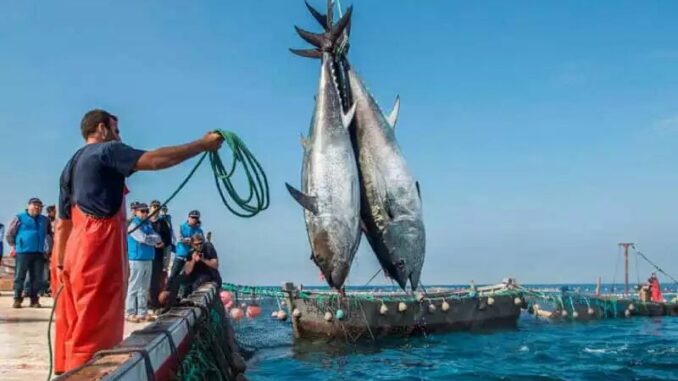
Morocco will decide on the future of cooperation with the European Union (EU) in the field of fisheries in the light of the government’s own assessments and in consultation with European partners, said, on Wednesday in Rabat, Minister of Foreign Affairs Nasser Bourita.
“The Morocco-EU fisheries Agreement is still in force. On the other hand, it’s the fisheries Protocol, concluded for four years (2019-2023), which expires on July 17,” said Bourita, who was speaking at a press briefing at the end of the 3rd Ministerial Meeting of the Atlantic African States Process.
This is a “programmed” expiry since the conclusion of the Protocol for a period of 4 years, starting on July 18, 2019.
Bourita described as “satisfactory” the implementation of the Protocol, noting that cooperation had been “positive and mutually beneficial” over the past four years.
He stressed that a meeting is scheduled for this week in Brussels between the Moroccan authorities and their European counterparts, within the framework of a joint Commission in the fisheries sector, to make a joint assessment of these four years.
With regard to the future of the fisheries Agreement, the Minister indicated that “the Moroccan government is currently considering” three parameters.
The first is “doctrinal”, he said, stressing that Morocco today, in line with the vision and foreign policy outlined by King Mohammed VI, favors partnerships “with a clearer added value”.
“Morocco would like to see more advanced partnerships, where Moroccan added value is stronger”, underlined Bourita.
Concerning the second parameter, the Minister explained that the Kingdom has developed a national fishing strategy “Halieutis” and put in place a vision dedicated to the development of the sector, which takes into account the expectations of operators and requires adaptations within the framework of interaction with partners.
The third parameter, which the government is integrating into its thinking and assessment, is linked to scientific data, with the aim of preserving this important natural resource for Morocco and Moroccans, and ensuring its sustainability, he added.
“Morocco will therefore interact with the European side on the basis of this reflection, which is underway,” stressed Bourita, noting that dialogue and cooperation with European partners are ongoing.
